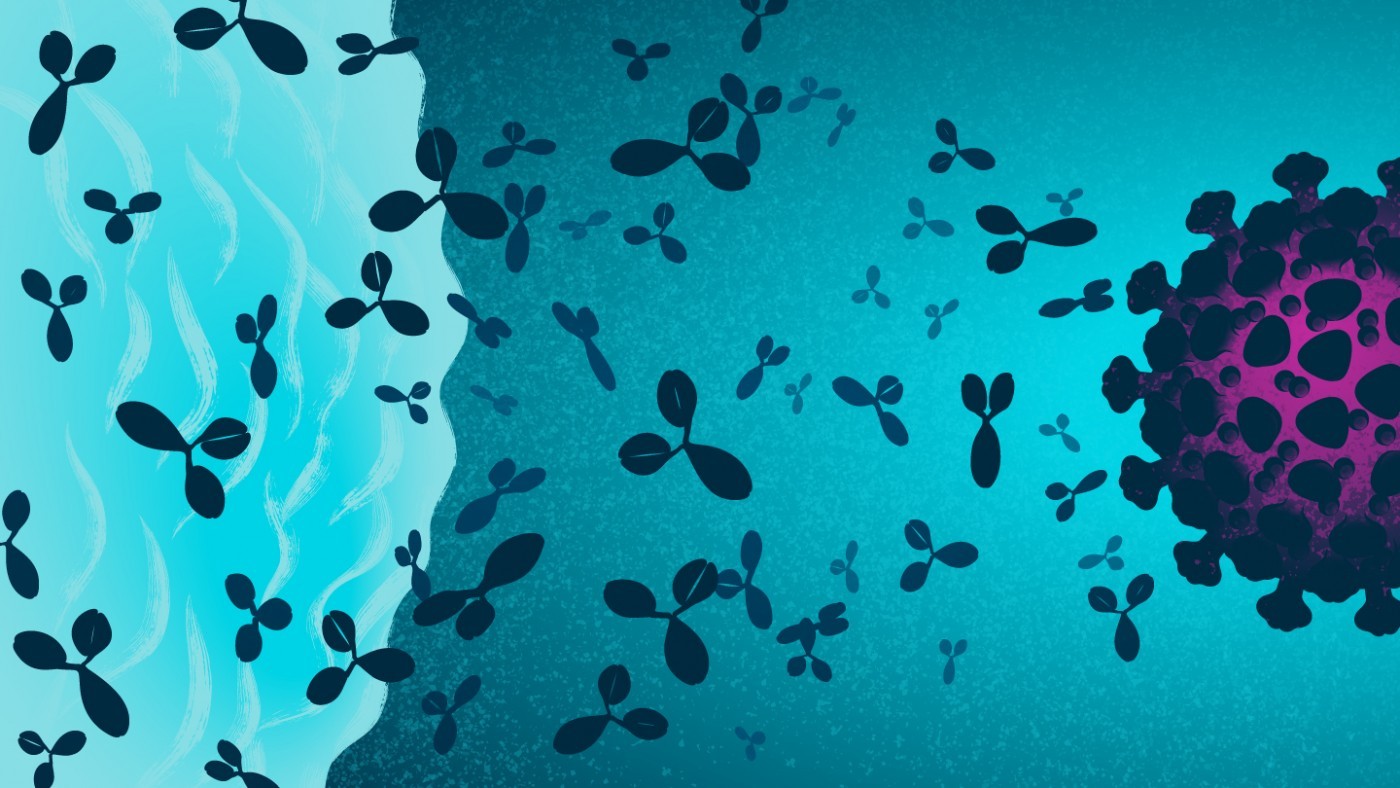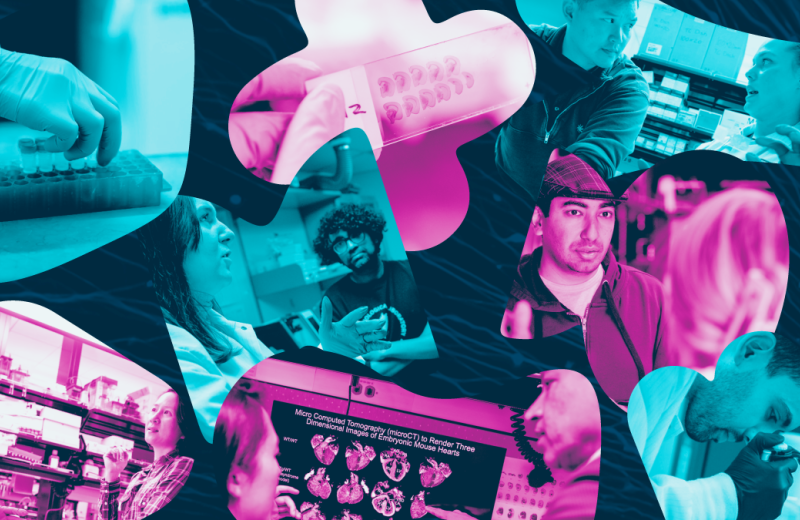Gladstone NOW: The Campaign Join Us on the Journey✕

Gladstone Scientist Nadia Roan, PhD, is looking at cells to understand COVID-19.
What makes some COVID-19 cases worse than others? That’s the question confronting medical teams as they make momentous decisions for the care of their patients. While risk factors like age and pre-existing health conditions play a role in outcomes, there are factors yet undiscovered that could lead to improved therapies, better health care, and an effective vaccine. To find them, Nadia Roan, PhD, a scientist at Gladstone and UC San Francisco (UCSF), along with UCSF scientists Sulggi Lee, MD, PhD, and Joshua Vasquez, MD, are looking into patients’ blood and tissues.
Using samples gathered from COVID-19 patients, the team plans to look at a number of immune cells, including B cells. B cells produce antibodies in the blood when the immune system encounters a threat. Roan and her team, in collaboration with Eliver Ghosn, PhD, of Emory University, will follow the features of B cells that produce antibodies against each of the proteins made by SARS-CoV-2, the coronavirus that causes COVID-19. The team will further identify from these B cells the genetic blueprint for producing antibodies effective in helping to eliminate SARS-CoV-2 from the body.
Once these antibody-encoding DNA sequences are cloned, the stage is set for screening of these antibodies for neutralizing activity against SARS-CoV-2, and eventual large-scale production of the most effective ones. Ramping up production gives scientists an ample supply of antibodies to test as candidates for treatments and to piece together the vaccine development puzzle. The team plans to look at B cells from patients with different severities of COVID-19, to see what features in the cells correlate with better recovery.
Stepping back from B cells and the immune system, the team will also look at the body’s overall response to COVID-19 to better predict clinical outcomes. This is a task Roan has done before, but with HIV. Along with Senior Investigator Warner Greene, MD, PhD, Roan studied blood-based biomarkers to predict when HIV rebounds after patients stop antiretroviral drugs. Using the toolbox from that study, Roan and her team can now look at blood specimens from COVID-19 patients to find biomarkers that may predict the clinical course of COVID-19 disease.
“These biomarkers can help risk stratify COVID-19 patients, helping to make crucial decisions about how best to care for them, particularly under conditions of limited medical resources made scarce by the pandemic,” explains Roan. Patients who would benefit most from hospitalization could be identified earlier, before their symptoms become life-threatening, while cases predicted to be milder could be treated safely with at-home care.
Roan’s team is also pivoting their experience with HIV to look at how lung cells respond to COVID-19. Using approaches they implemented to study HIV-infected cells from people living with HIV, they’ll look at what happens in SARS-CoV-2 infected lung cells at different stages of the disease, in search of correlations between what happens in the cells and the outcomes of the disease. Their observations will inform how SARS-CoV-2 causes disease and complement the identification of blood-based biomarkers to predict patient outcomes and improve care decisions.
Combined with the team’s experience in studying viruses like HIV and the infrastructure already available in Gladstone labs, these studies will launch Roan’s team into the desperately needed research to understand why and how different people respond so differently to COVID-19, knowledge that will be informative for vaccine design, therapeutics, and improving COVID-19 patient care.
Support Our COVID-19 Research Efforts
Gladstone scientists are moving quickly to respond to the coronavirus outbreak. Help us end this pandemic.
Gladstone’s Scientific Highlights of 2025
Gladstone’s Scientific Highlights of 2025
From fundamental insights to translational advances, here’s how Gladstone researchers moved science forward in 2025.
Gladstone Experts Alzheimer’s Disease Autoimmune Diseases COVID-19 Neurological Disease Genomic Immunology Cardiovascular Disease Data Science and Biotechnology Infectious Disease Conklin LabScience in Seconds | Researchers Pinpoint Key Gene Behind Heart Defects in Down Syndrome
Science in Seconds | Researchers Pinpoint Key Gene Behind Heart Defects in Down Syndrome
In this video, Gladstone scientists share how they used stem cells, gene editing, and AI to identify a gene driving heart defects in Down syndrome—and how reducing its levels in mice restored normal heart development, offering hope for future treatments
Gladstone Experts Cardiovascular Disease Data Science and Biotechnology Pollard Lab Srivastava Lab AI Big Data CRISPR/Gene Editing Human Genetics Stem Cells/iPSCsScience in Seconds | The Thinking Microscope: Research Powered by an AI Brain
Science in Seconds | The Thinking Microscope: Research Powered by an AI Brain
In this video, Steve Finkbeiner and Jeremy Linsley showcase Gladstone’s groundbreaking “thinking microscope”—an AI-powered system that can design, conduct, and analyze experiments autonomously to uncover new insights into diseases like Alzheimer’s, Parkinson’s, and ALS.
Gladstone Experts ALS Alzheimer’s Disease Parkinson’s Disease Neurological Disease Finkbeiner Lab AI Big Data



